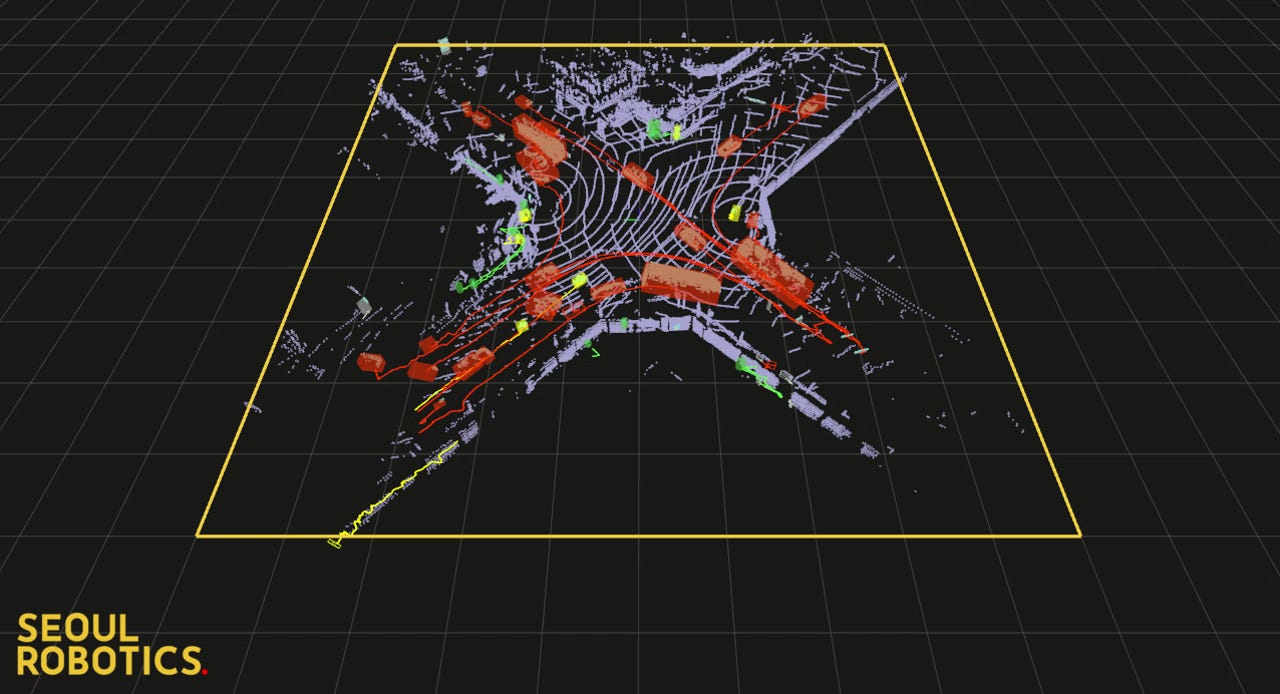A lidar dev kit that plugs-and-plays out of the box


A foundational technology in autonomous vehicles, lidar is steadily making its way into a broader range of robots thanks to plummeting prices. Case in point, a company called Seoul Robotics just launched a ready-to-go, plug-and-play lidar perception system that can be deployed out of the box.
Lidar, which was cost-prohibitive for most applications as little as five years ago, may be the key to unlocking a world in which robots take to the streets en masse. But for that to happen, developers need not only the hardware but the software designed for easy integration.
"First and foremost, lidar sensors do not work without sophisticated perception software. The lidar industry is investing billions of dollars on sensors without even considering the software needed to interpret the data into actionable solutions," says HanBin Lee, CEO of Seoul Robotics. "Voyage combines analytics and sensors to bring tangible solutions to market much faster."
The lidar market is on track to reach more than $3 billion by 2025. But the niche range of applications for lidar -- and in particular the autonomous vehicle space -- has confined product offerings specialized use cases. It's been largely left to end users to develop underlying software architecture to deploy lidar sensors. It's only recently that we're beginning to see truly use-agnostic sensor and software suites, a development that has big implications for IoT and robotics.
Seoul Robotics' new offering is called Voyage. It provides centimeter-accurate 3D object detection, tracking, and classification in addition to volumetric profiling and motion prediction capabilities, regardless of lighting conditions, and can collect and process data from up to four sensors for seamless insights across the sensor coverage zones. As Voyage does not capture, show or store any biometric and otherwise identifying data, it aims to maximize the protection of people's privacy when installed as part of various smart cities and security systems, signaling one range of potential uses.
The development kit is equipped with the company's proprietary software SENSR2, lidar sensors, and a computer for applications that range from retail to smart cities to security.
The arrival of these cost-effective, use agnostic lidar platforms is important because it suggests capability acceleration for IoT and automation technologies, including autonomous mobile robots designed to operate outside of structured and semi-structured environments.